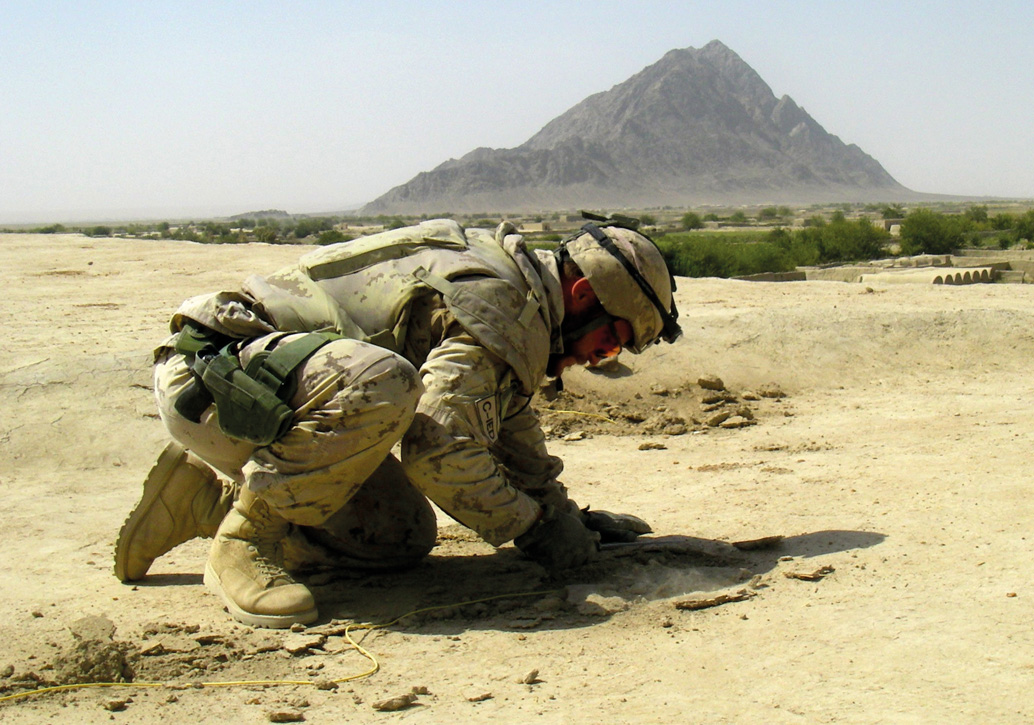The journey to business success after service
By Paul Struthers
Veterans Bruno Guevremont and Joel Guindon hope to inspire others through their stories of resiliency, grit and determination.
As former and current Team Canada athletes for the Invictus Games—Prince Harry’s international adaptive multi-sport event for injured or sick armed service personnel—these former soldiers have found the strength to succeed in their post-military careers through sport.
A retired Royal Canadian Navy Diver, Bruno joined the Canadian Armed Forces in 1999 with a desire to serve his country. After 15 years and two tours in Afghanistan, he was forced to take medical leave from the military in 2014 after being diagnosed with post-traumatic stress disorder (PTSD). While he would have gladly remained in the military, it wasn’t up to him. “Once you’re diagnosed with a lifelong injury you’re no longer deployable and no longer employable in the military,” he recalls. This is because PTSD, while considered an “invisible disability,” can have very real consequences—as it did for Bruno.
Time for honest conversations
Experts suggest that mental illness is a leading cause of disability, and research by Veterans Affairs has found that about a fifth of Canadian veterans experience a diagnosed mental health disorder at some time during their lives—the most common are depression, PTSD and anxiety disorders. “We need to open the dialogue about mental health and disability,” says Bruno. “Then we can have an honest conversation about what we need to work on.”
Most of us know at least one person who has struggled with mental health issues. With some compassion, we can remove the stigma and encourage people to actively seek help for recovery.
While at war, Bruno faced stressful situations that most of us will never even come close to, such as having to dismantle a suicide vest while the bomber was still wearing it. “I became hyper-vigilant,” says Bruno, “and I was seeing things that our brains would usually filter out in civilian life. I got depressed and anxious and responded with anger.”
To redirect these feelings, Bruno turned to sports and fitness as a form of therapy and soon began his journey to recovery. He discovered a passion for business and in helping others to achieve physical wellness. Today, he’s thriving as the owner of a CrossFit gym in Victoria, BC. However, he’s constantly reminded that leaving the military can be difficult for many. “You need to reinvent yourself,” he says.
Imagining the possibilities
That’s precisely what retired corporal Joel Guindon realized he needed to do. After serving tours of duty in Bosnia and Afghanistan, Joel too was forced to retire because of a post-traumatic stress injury and back injuries. War is hard on both a soldier’s mind and body. Similarly to Bruno, Joel found it hard to re-adjust to civilian life. “Dealing with a post-traumatic injury has made it difficult for me to find a steady job,” he says. “I can’t work five days a week, and there aren’t a lot of employers who can or are ready to adapt their working schedule to someone who is only able to work three to four days. Companies could find alternatives and be more inclusive in their hiring policies. Imagine the possibilities of offering flexible work arrangements so veterans re-entering the workforce can have viable options that suit their medical circumstances. On top of that, the military is very mission-driven. There’s one goal, and that’s ‘do what’s necessary to get the job done.’ The business world I’ve discovered isn’t quite so cut and dry.”
This reality eventually drove Joel to start his own project—a business built around his ability to inspire like-minded individuals to overcome challenges. He is now a motivational guest speaker on topics such as mental health, transitioning from the armed forces to civilian jobs and post-traumatic stress injuries. Veterans and their families and other individuals experiencing similar obstacles can benefit from his personal learnings and insights.
Recovery through sport
Joel and Bruno’s recent involvement with the Invictus Games has also helped to steer their career paths. A life-changing experience for many, the Invictus Games opens eyes and hearts by providing veterans with acknowledgement and support—both on and off the playing field. “It’s been an instrumental part of my recovery,” says Joel.
The Invictus Games also put soldiers in touch with each other to learn about what they’re doing to progress in life and service. This is how other veterans met Bruno, the former Canadian team captain for Invictus 2016, and learned about Sage Foundation’s Serving Heroes Program. The program provides guidance, mentoring and support aimed at developing new businesses.
“Vets don’t know they have the skills employers are looking for,” says Bruno. “It’s just a different language to the one we use in the military. We need help to translate our skills to the civilian world. Every time I speak with someone from the Heroes Program, my world gets bigger with more possibilities,” he says. “I think that people like me who have disabilities have a little bit more grit, because of how we have to face everyday life. We just have to believe we can achieve anything.”
Paul Struthers is the Executive Vice President and Managing Director of Sage Canada.














